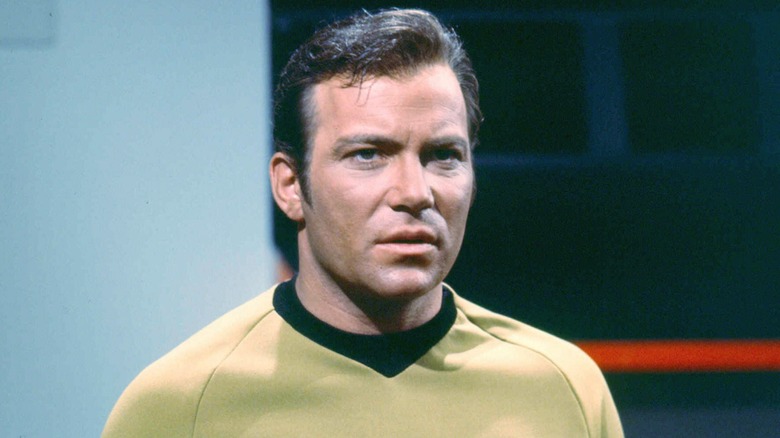Why William Shatner Didn't 'Benefit' From Star Trek's Late Success
We may receive a commission on purchases made from links.
When "Star Trek" fans rank every Enterprise captain, William Shatner's James T. Kirk is always going to be near the top of that list. Shatner created an iconic and beloved character that changed the course of his life, even if few could have guessed how lasting the show's popularity would prove amid its initial run. Despite unimpressive ratings during the show's original airing, it amassed a cult following that would continue to explode when the series was syndicated — success that did little to benefit Shatner as the star of "Star Trek," since TV actors at the time weren't paid royalties. Responding to a now-deleted post on X, Shatner vented about the situation, writing: "Anything before 1973 (that includes Star Trek Original Series) doesn't pay a cent in Royalties."
At the time, re-runs weren't really a thing, and, as such, royalties were not a standard part of a network's contracts for actors. The idea that any series, let alone a show with middling ratings like "Star Trek," would continuously air in syndication for decades probably seemed absurd. "Nobody knew about re-runs," Shatner told The Telegraph. "The concept of syndication only came in after 'Star Trek' was canceled when someone from the unions said: 'Wait a minute, you're replaying all those films, those shows.' There was a big strike. But in the end, the unions secured residual fees shortly after 'Star Trek' finished, so I didn't benefit." The deal Shatner's referring to was finalized in 1974, when SAG and AFTRA forced the major networks to pay residuals on primetime dramatic programming.
Shatner was broke after Star Trek ended
Today, William Shatner enjoys a level of financial security that affords him the ability to support generations of his family, something he told The Telegraph is both "a pleasure and a privilege." One thing that "Star Trek" fans may not know about Shatner is that he experienced many humble days as a struggling actor, both before and after his first stint as Captain Kirk.
Shatner got his start in his place of birth: Montreal. He worked in amateur theater and radio productions to begin with, making no more than a couple of hundred dollars a month. In Shatner's autobiography "Up Till Now," he revealed that things were so tight in those days that he saved money by subsisting on a once or twice-daily 27-cent fruit salad order from Kresge's lunch counter in Ottawa. "I lived on fruit salad and grew to hate fruit salad. My one luxury was my forty-dollar car. That's what I paid for it, and it was worth that price," he wrote. A successful stint with the Stratford Shakespeare festival in Ontario jumpstarted his career and he made the jump to the screen, where Captain Kirk's chair awaited.
While the "Star Trek" money was steady for Shatner, it wasn't enough to last, especially when his marriage broke down. After his show's cancellation, things got so rough that he didn't have a real roof over his head. "I'm broke, living in a truck, sleeping in the back and trying to save that money so I could support my three kids and my [ex-]wife," he told The Hollywood Reporter. His fortunes changed when "Star Wars" hit cinemas in 1977 and Paramount was inspired to revive "Star Trek" in a movie format. Shatner reprised his role in seven "Star Trek" films between 1979 and 1994, earning not only a place in pop culture history, but enough money to live comfortably.

